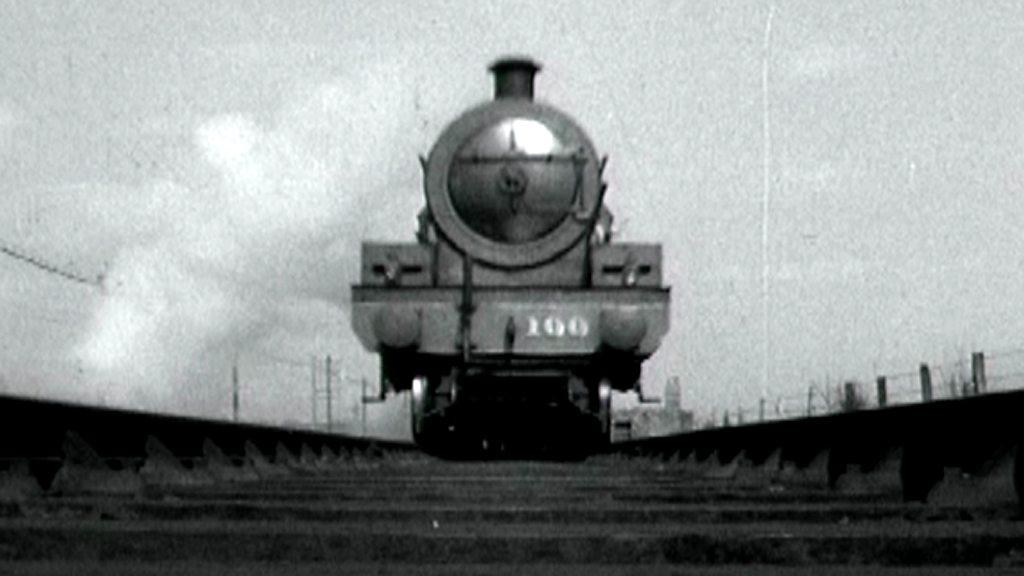Train travel: Cash for new rail - but will Wales get on track?
- Published
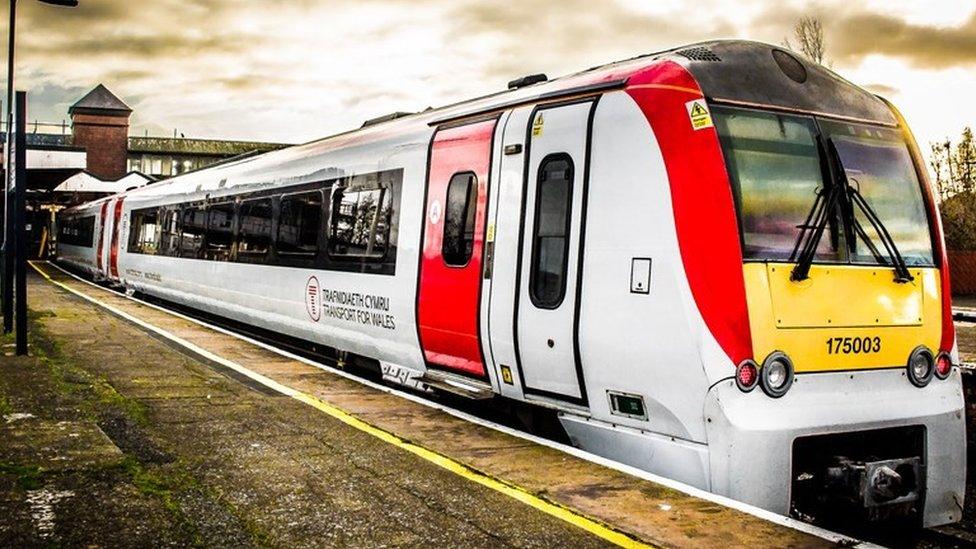
Power over the rail network in Wales is not devolved
Communities across Wales are being encouraged to get on board - and bid for a share of cash to consider re-opening rail lines.
The UK government has announced a pot of £500m to "kickstart" the restoration of routes axed more than 50 years ago.
Nearly 200 Welsh stations and lines were earmarked for closure under the Beeching reforms of 1963.
It saw lines such as Aberystwyth to Carmarthen shut.
But there have been several high profile campaigns aimed at reversing Beeching closures - including the mid Wales line.
However, rail in Wales is never straight forward.
While running services in Wales is a devolved matter, the lines and stations are part of the rail infrastructure, which remains under the control of the UK government and bodies such as Network Rail.
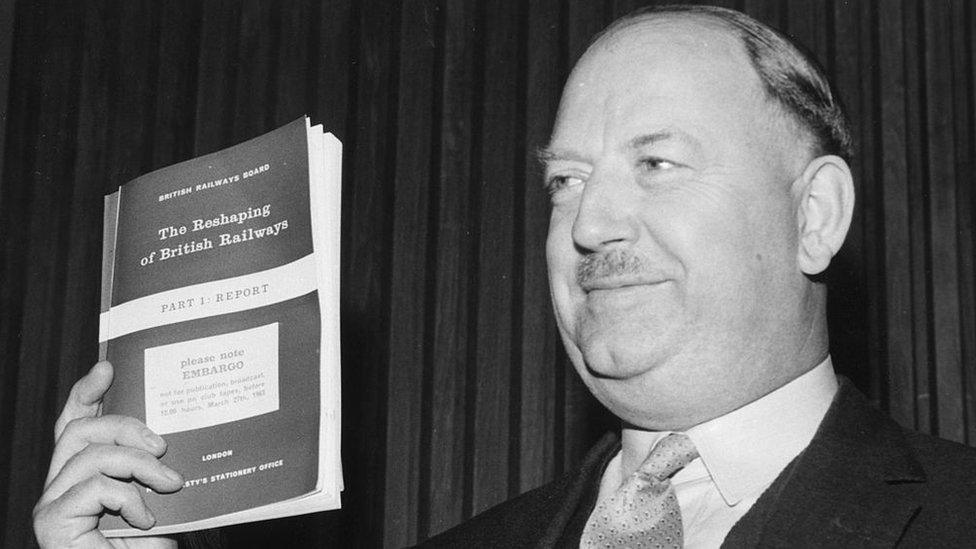
The rail axe man: Dr Richard Beeching proposed thousands of cuts to the British rail network in 1963
Last year, the Welsh Government made it clear it wants to see power over the rail network follow the train services, and come under its remit.
It followed what Welsh ministers described as "unprecedented cross-party support for change" when assembly members debated the future for the rail network in Wales in February 2019.
"For too long Wales has been denied its fair share of rail infrastructure funding and the Welsh Government has had little choice but to divert our own funding from our devolved responsibilities like health and education in order to make essential investments in our rail network," said transport minister Ken Skates, setting out a push for "full rail devolution" last autumn., external
Response to the £500m funding announcement from UK ministers has been lukewarm in some quarters, with the Rail, Maritime and Transport union describing it as a "drop in the ocean".
Examining just one proposal for Wales puts that view into perspective.
A two-year £300,000 feasibility study, external into reopening the route between Aberystwyth and Carmarthen suggested it would cost in the region of £775m alone.
Transport expert Prof Stuart Cole, from the University of South Wales, said since the original study, the cost for the mid Wales line is probably closer to £900m.
Back to 1963: How the Beeching cuts were reported
But it is just one scheme already vying for attention in Wales - and under the current devolution settlement, it's competing for funding with the rest of the UK.
"It's not going to get anywhere near completed, when we look at today's announcement," said Prof Cole.
"It's not very high on the list of priorities for the UK government.
"Especially when there is already an express bus service linking the two towns - it is not going to save much time."
Instead, Prof Cole said money from the UK Treasury is more likely to be earmarked for a new passenger service on the Swansea District Line.
The route runs mostly parallel with the current south Wales track, operating freight.
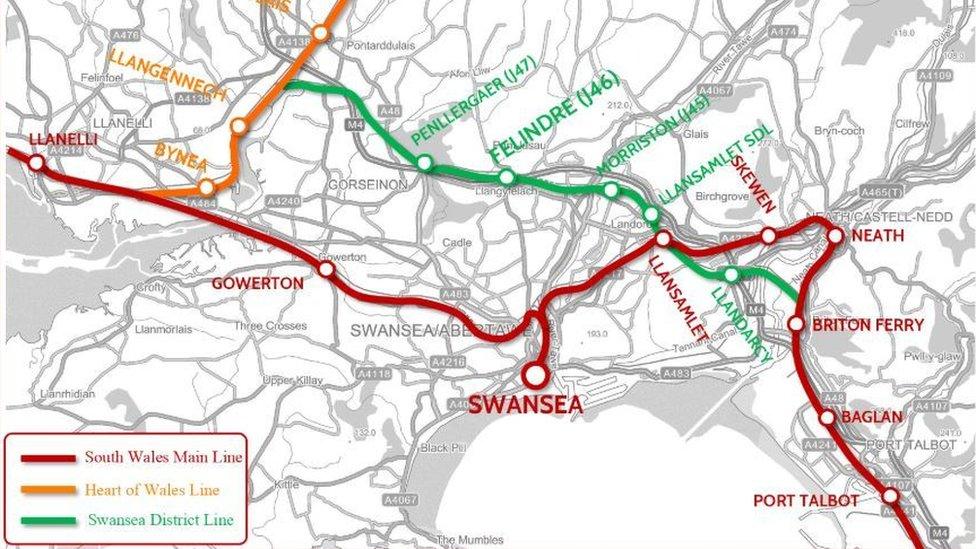
The Swansea District Line could help cut west Wales travel times
But with a new £25m station around Felindre near junction 46 of the M4 motorway, travel times from areas like Carmarthen to Cardiff could be cut to just over an hour.
"You are talking about saving 20-odd minutes on the journey, for a relatively small cost - it is much more likely to happen," added Prof Cole.
The appetite for rail in Wales is clearly growing.
The Campaign for Better Transport group, external lists more than 20 lines and stations in Wales it believes could improve the Welsh rail network.
It includes major interventions such as re-opening the Bangor to Caernarfon and Porthmadog route in Gwynedd, providing a bridge to a wider north-south Welsh route, to smaller projects, such as reopening the three mile section of track between Beddau and Pontyclun in Rhondda Cynon Taff.
One station that has had the go-ahead is the £8m Bow Street in Ceredigion, with work under way join locations to the Cambrian Line trains between Aberystwyth and Shrewsbury.
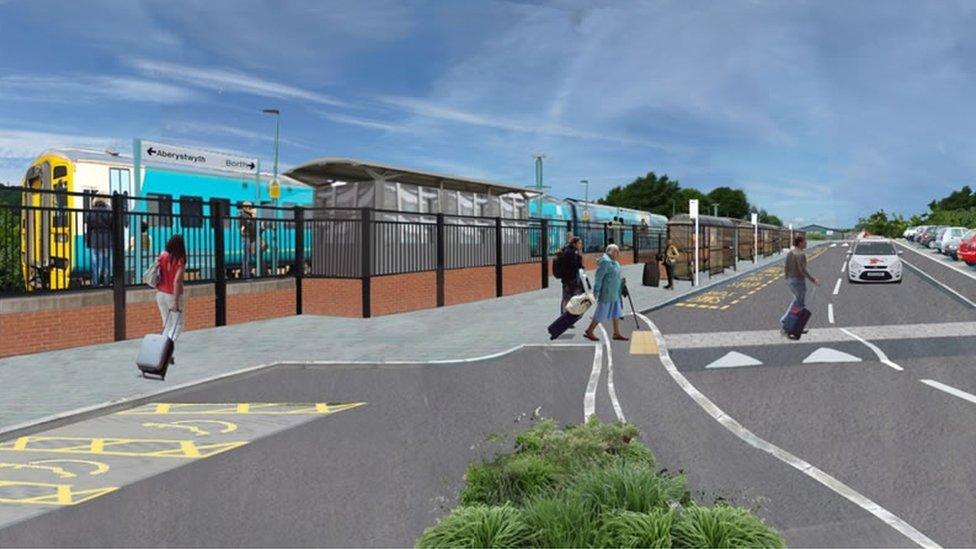
The new £8m Bow Street station in Ceredigion is due to open later in 2020
The development also opened the door for a new station at Carno in Powys to be including on a list of four more stations being considered by rail bosses.
Others include Cardiff's Ely Mill/Victoria Park bid, while St Clears in Carmarthenshire is also in the running, along with a station serving the massive Deeside Industrial estate in Flintshire.
Prof Cole said if more rail powers were devolved, and the Welsh Government was able to borrow to invest, more and more projects could get the go-ahead.
All this as massive rail infrastructure projects in Wales have been under way, including electrification of the main London-Cardiff line, and plans for a South Wales Metro.
"Our vision for rail in Wales includes the opening of new stations and re-opening old lines, where possible, to improve connectivity," said a Welsh Government official.
"We will continue to press for devolution of powers over rail infrastructure and for a fair funding settlement commensurate with levels of investment in England. Only Wales can determine where and how investment is needed to achieve an integrated and accessible transport system for all in Wales."
- Published28 January 2020
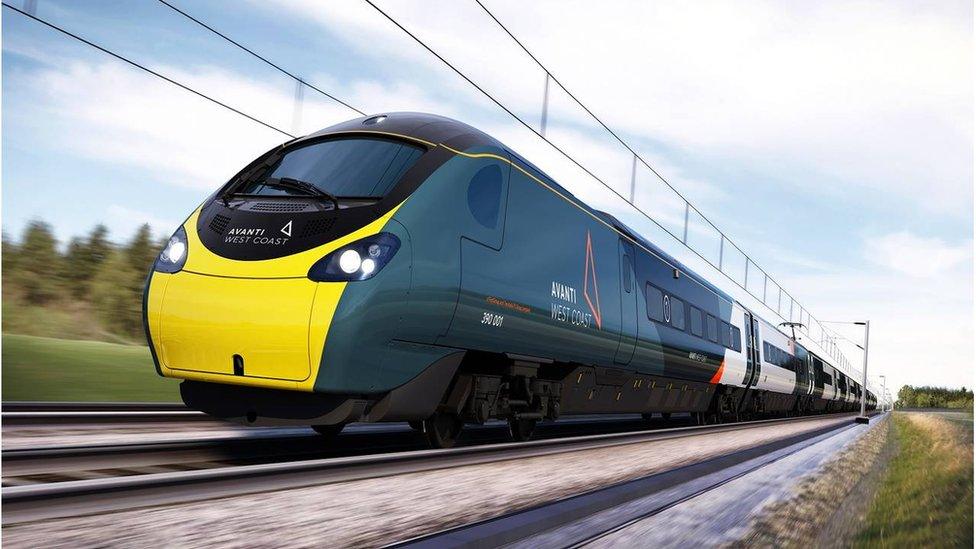
- Published13 January 2020
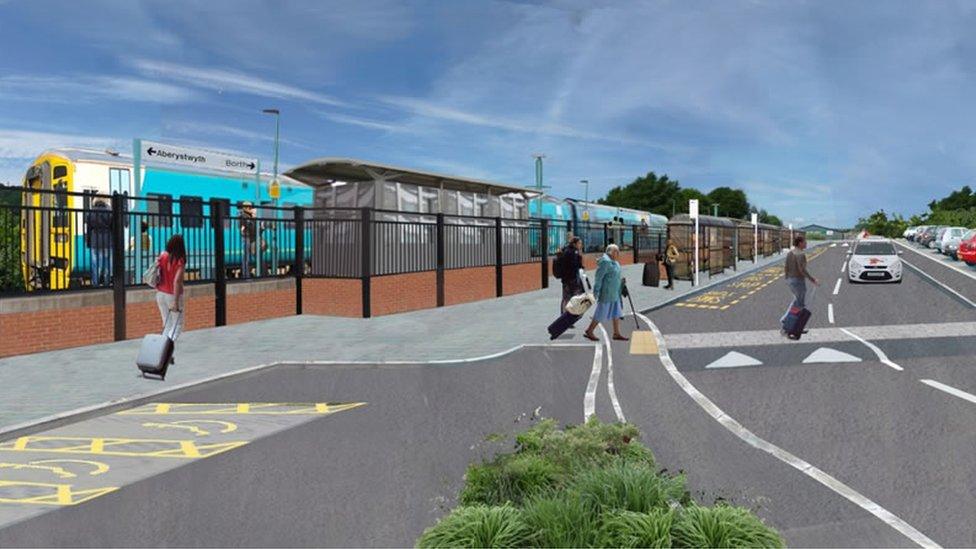
- Published25 April 2019
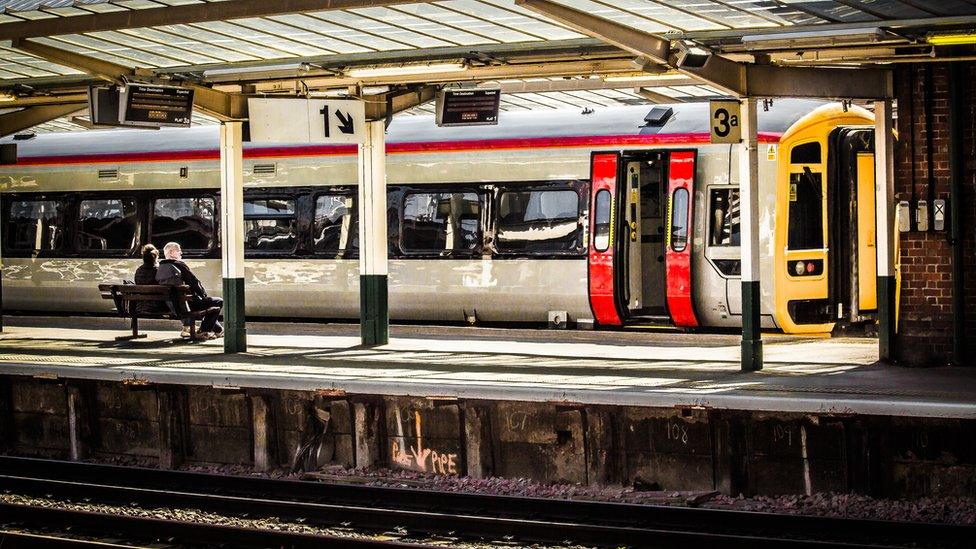
- Published7 February 2019
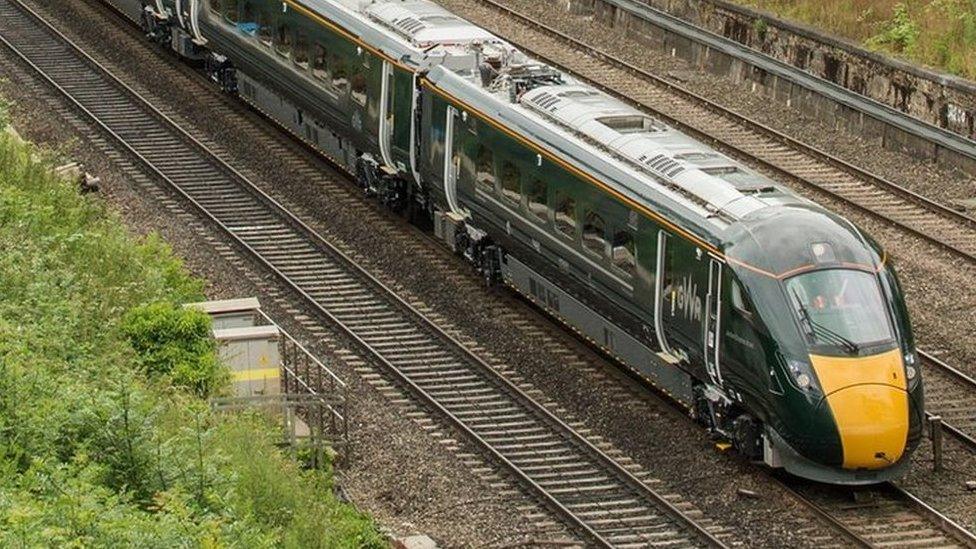
- Published24 October 2018
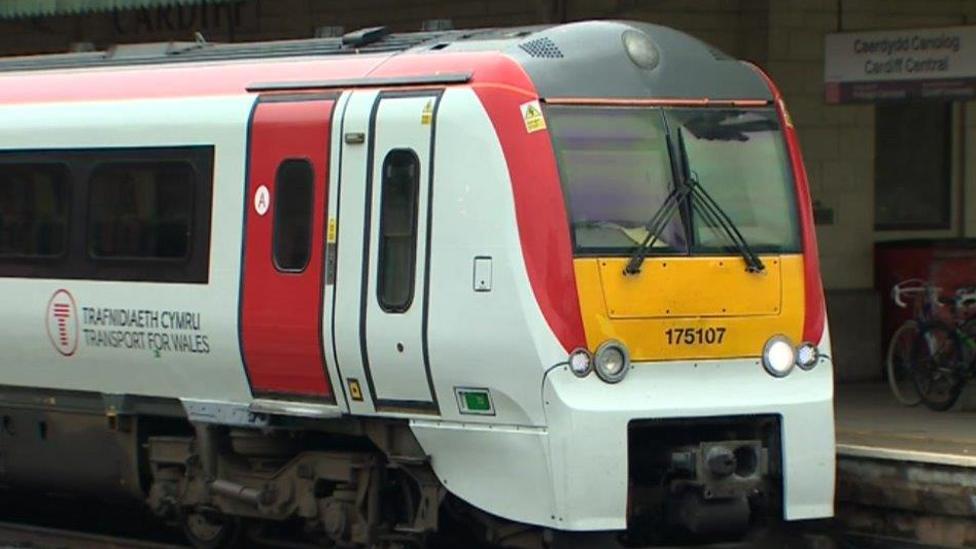
- Published10 September 2016

- Published3 October 2017
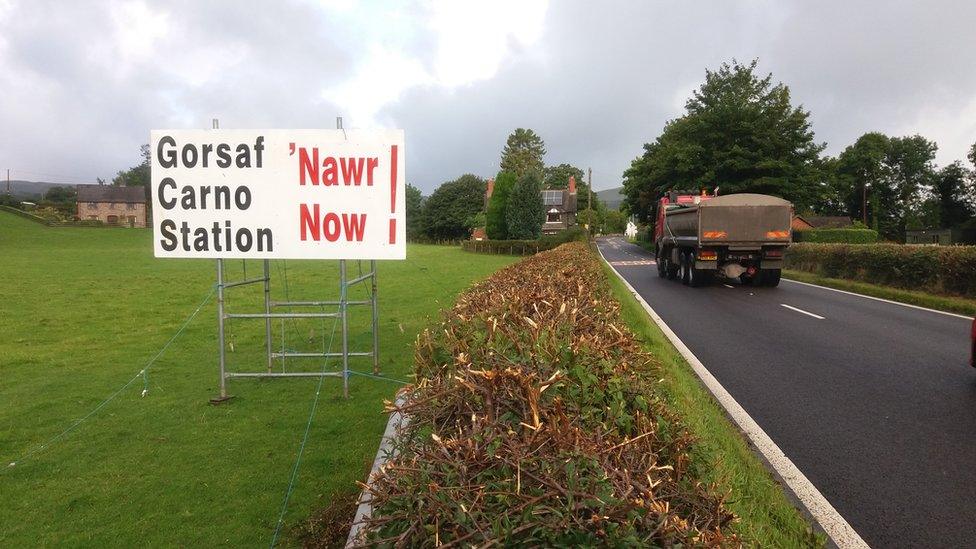
- Published27 March 2013

- Published27 March 2013
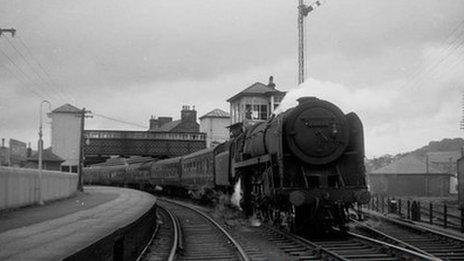
- Published19 April 2012
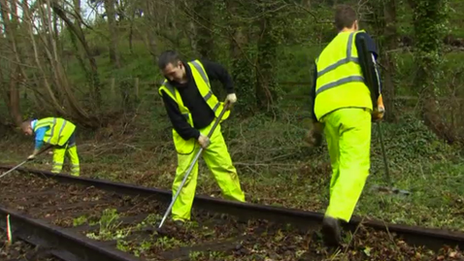
- Published29 November 2017
